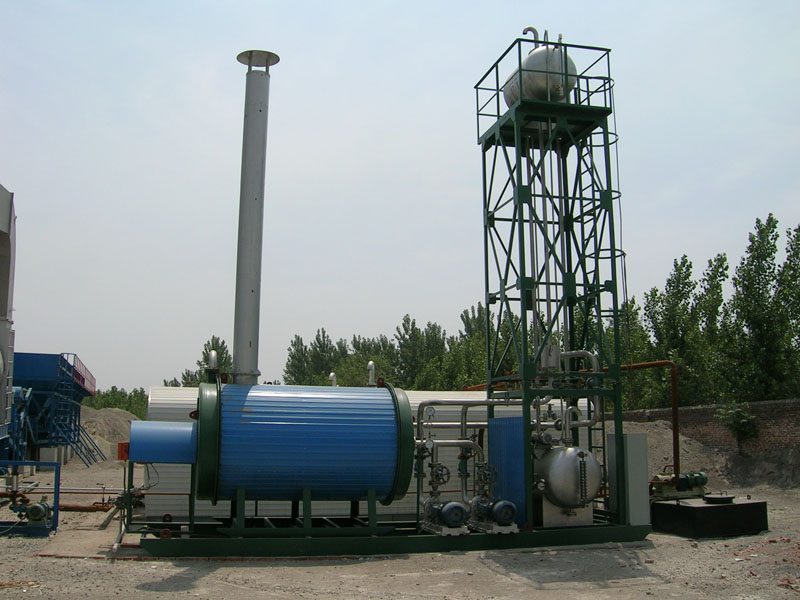 English
English Español
Español  Português
Português  русский
русский  Français
Français  日本語
日本語  Deutsch
Deutsch  tiếng Việt
tiếng Việt  Italiano
Italiano  Nederlands
Nederlands  ภาษาไทย
ภาษาไทย  Polski
Polski  한국어
한국어  Svenska
Svenska  magyar
magyar  Malay
Malay  বাংলা ভাষার
বাংলা ভাষার  Dansk
Dansk  Suomi
Suomi  हिन्दी
हिन्दी  Pilipino
Pilipino  Türkçe
Türkçe  Gaeilge
Gaeilge  العربية
العربية  Indonesia
Indonesia  Norsk
Norsk  تمل
تمل  český
český  ελληνικά
ελληνικά  український
український  Javanese
Javanese  فارسی
فارسی  தமிழ்
தமிழ்  తెలుగు
తెలుగు  नेपाली
नेपाली  Burmese
Burmese  български
български  ລາວ
ລາວ  Latine
Latine  Қазақша
Қазақша  Euskal
Euskal  Azərbaycan
Azərbaycan  Slovenský jazyk
Slovenský jazyk  Македонски
Македонски  Lietuvos
Lietuvos  Eesti Keel
Eesti Keel  Română
Română  Slovenski
Slovenski  मराठी
मराठी  Srpski језик
Srpski језик
Why Choose a Thermal Oil Heater for Your Industrial Heating Needs?
2025-09-17
When industries look for a reliable and efficient heating solution, one technology consistently stands out — the Thermal Oil Heater. Known for its stable performance, energy efficiency, and wide application across different sectors, this equipment has become indispensable in many manufacturing processes. But what exactly is a thermal oil heater, how does it work, and why is it the right choice for your business? Let's explore in detail.
What Is a Thermal Oil Heater?
A Thermal Oil Heater is an industrial heating system that uses heat transfer oil as its working medium instead of steam or hot water. The oil is circulated in a closed loop and heated by burners or electrical systems. This design allows the heater to deliver high temperatures (often up to 320–350°C) at low system pressures, ensuring safety, reliability, and energy efficiency.
Compared with traditional boilers, thermal oil heaters avoid scaling and freezing problems, require less water treatment, and operate with higher thermal efficiency.
Key Features and Advantages
-
High Thermal Efficiency – Up to 90% or more, reducing fuel consumption.
-
Low Operating Pressure – Achieves high temperatures without the risks associated with high-pressure systems.
-
Versatile Fuel Options – Works with natural gas, diesel, heavy oil, coal, biomass, or electricity.
-
Stable Heat Supply – Provides uniform heating for sensitive industrial processes.
-
Long Service Life – Advanced design reduces wear and extends operating time.
-
Easy Operation and Maintenance – Automated control systems simplify handling.
Technical Parameters of Thermal Oil Heater
Here are the typical parameters of thermal oil heaters provided by WUXI XUETAO GROUP CO., LTD. Specifications can be customized according to customer requirements.
Main Specifications
-
Heat Output Range: 200,000 kcal/h to 20,000,000 kcal/h
-
Working Medium: Heat transfer oil
-
Max Working Temperature: 320–350°C
-
Operating Pressure: Atmospheric or low pressure (≤0.8 MPa)
-
Efficiency: 85–92% depending on fuel type
-
Fuel Options: Natural gas, diesel, heavy oil, coal, biomass, or electric heating
-
Control System: Automatic PLC system with safety interlocks
-
Applications: Chemical, food processing, textile, construction materials, oil & gas, and more
Example Technical Table
| Model | Heat Output (kcal/h) | Working Temp (°C) | Efficiency (%) | Fuel Type Options | Pressure (MPa) | Control System |
|---|---|---|---|---|---|---|
| YLW-700 | 700,000 | 320–350 | 88–90 | Gas / Oil / Biomass | ≤0.8 | PLC Automatic |
| YLW-1400 | 1,400,000 | 320–350 | 89–91 | Gas / Oil / Biomass / Coal | ≤0.8 | PLC Automatic |
| YLW-4200 | 4,200,000 | 320–350 | 90–92 | Gas / Oil / Biomass | ≤0.8 | PLC Automatic |
| YLW-7000 | 7,000,000 | 320–350 | 91–92 | Gas / Oil | ≤0.8 | PLC Automatic |
| YLW-20000 | 20,000,000 | 320–350 | 91–92 | Gas / Oil | ≤0.8 | PLC Automatic |
Applications of Thermal Oil Heater
A Thermal Oil Heater is highly adaptable across industries that require stable and efficient heating.
-
Chemical Industry – Used in resin, paint, plastic, and synthetic fiber production.
-
Food Industry – Applied in baking, drying, frying, and sterilization.
-
Textile Industry – Provides heat for dyeing, printing, and drying.
-
Construction Materials – Bitumen heating, asphalt mixing plants, and cement drying.
-
Oil & Gas Industry – Pipeline heating and processing of crude oil.
-
Wood Processing – Drying, veneer pressing, and plywood production.
Why Industries Prefer Thermal Oil Heater
-
Safe Operation – No risk of explosion due to low pressure.
-
Cost-Effective – Lower operating costs compared with steam boilers.
-
Long-Term Reliability – Durable construction ensures extended use.
-
Environmental Benefits – Optimized combustion reduces emissions.
-
Flexibility – Can be integrated into existing production lines easily.
Frequently Asked Questions about Thermal Oil Heater
Q1: What is the maximum temperature a Thermal Oil Heater can reach?
A1: Most thermal oil heaters can operate continuously at temperatures up to 320–350°C, depending on the model and type of heat transfer oil used. This high temperature is achieved at relatively low pressure, making it safer than steam-based systems.
Q2: How does a Thermal Oil Heater compare with a steam boiler?
A2: Unlike steam boilers that require high pressure to achieve high temperatures, thermal oil heaters deliver the same heat output at low pressure. This reduces risks, avoids water treatment problems, and provides more stable heating for sensitive industrial processes.
Q3: What type of maintenance is required for a Thermal Oil Heater?
A3: Maintenance mainly includes monitoring oil quality, checking the burner system, cleaning heat transfer surfaces, and ensuring the safety interlocks are functioning properly. With proper care, the system can operate reliably for many years.
Q4: Which industries benefit the most from using a Thermal Oil Heater?
A4: Industries requiring stable, high-temperature heating without high-pressure risks are the main beneficiaries. These include chemical plants, textile factories, food processing units, asphalt mixing plants, and oil refineries.
Conclusion
The Thermal Oil Heater has proven to be one of the most efficient, safe, and versatile heating solutions for modern industries. Its ability to deliver high temperatures at low pressures, combined with long service life and flexible fuel options, makes it the preferred choice for businesses worldwide.
If you are considering upgrading your industrial heating system, choosing a high-quality Thermal Oil Heater from WUXI XUETAO GROUP CO., LTD can bring long-term benefits in performance, safety, and cost efficiency. For more details or technical consultation, please contact our team and explore the best solution tailored to your specific application.





